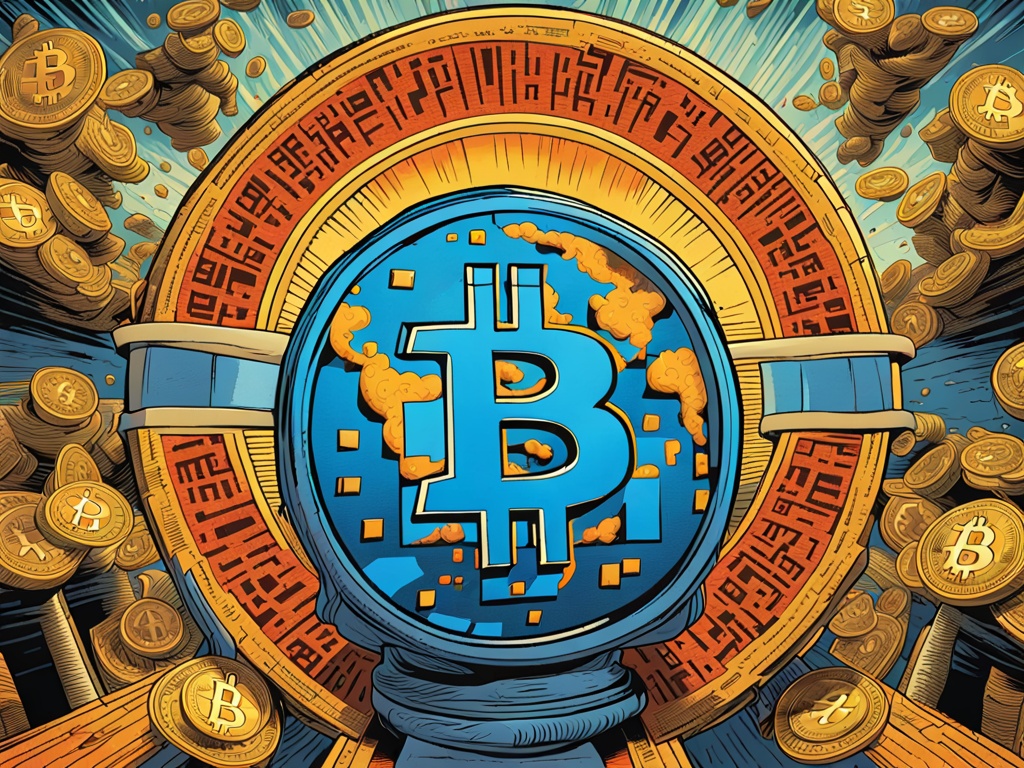Can Bitcoin Really Pay Off the National Debt? A Closer Look
Imagine you’re at a coffee shop, chatting with a friend about cryptocurrencies. They bring up this bold claim: "If the U.S. buys a million Bitcoins, we can wipe out the national debt!" You take a sip of your coffee and think, "Wait a minute, is that really possible?" Let’s break this down in detail because this claim raises a lot of eyebrows, and trust me, it’s a hot topic in the crypto market right now!
Key Takeaways
- A million Bitcoins won’t be enough to clear the U.S. national debt of $36 trillion.
- For Bitcoin’s market cap to address the debt, it would need to skyrocket over 20,000%.
- The national debt continues to grow, making this scenario even more implausible.
- Bitcoin isn’t seen as a global currency yet by many economists.
So, here’s the deal. Peter Schiff, a well-known economist and a bit of a crypto skeptic, recently took the stage and threw some cold water on the excitement surrounding Bitcoin’s ability to save the U.S. from financial doom. He pointed out that even if the U.S. were to purchase 1 million Bitcoins, which sounds like a hefty number, it wouldn’t even come close to resolving the massive national debt, currently sitting at around $36 trillion.
The Math Behind the Madness
Let’s talk numbers (don’t roll your eyes yet). As of now, Bitcoin trades at about $102,286 per coin. So, if the U.S. somehow managed to snag a million of them, we’re looking at a total of around $102 billion. And sure, that sounds like a lot—until we actually stack it against the national debt. Schiff calculated that to truly tackle that $36 trillion debt, Bitcoin’s market capitalization would need to soar to an astronomical $761 trillion, which is about six times the entire world’s GDP! Can we say "unrealistic"?
To give you a little more context, Schiff argued that for 1 million Bitcoins to even come close to addressing that debt, its value would have to balloon over 20,000%. That’s like trying to sell your old Gameboy for a price that can buy a mansion. You get my point?
Growing Debt and the Bitcoin Bubble
Now, here’s where things get trickier. If Bitcoin did hit that astronomical market cap, would it stay there? Schiff argues no. He believes that as Bitcoin’s value grows, the inflating market cap would likely lead to a price correction. So, what does that mean for crypto traders? I see it like this: if you’re hoping for Bitcoin to perform a debt-clearing miracle, you might want to rethink your strategy.
Oh, and let’s not forget that the national debt isn’t static; it keeps climbing every year. The U.S. government borrows more money annually, so by the time Bitcoin might reach that high market cap, you can bet your favorite hoodie that the national debt will have ballooned too.
Bitcoin: Not Yet the Global Currency?
Shifting gears a bit, I find it interesting that even with Bitcoin’s impressive price climbs, we can’t ignore the fact that it hasn’t really made its mark as a global currency. Many mainstream economists still view it as a speculative asset, driven more by hype and ‘FOMO’ than by any real-world demand.
Schiff seems convinced that there will not be widespread adoption of Bitcoin like we have with fiat currencies. Only a handful of countries have accepted it as official currency, and many more are fiercely opposed to even considering the idea. If you think about it, that’s pretty significant; it means Bitcoin’s future as anything beyond an investment vehicle is still put on hold.
Restriction Realities
As amusing as it is to gather in crypto chat rooms where folks dream big about what Bitcoin could do, it’s worthwhile to sit back and ponder the bigger picture. The crypto world is still riddled with uncertainties. It’s about evaluating the risks, identifying the long-term impact, and remembering that the future of digital currency isn’t guaranteed.
So, if you’re an aspiring investor, here’s my personal advice:
- Do Your Homework: Understand the fundamentals of Bitcoin and the market dynamics. Research is crucial!
- Diversify: Don’t put all your eggs in one basket. Consider blending your portfolio with different assets.
- Stay Updated: Keep reading up on economic trends and expert opinions. Things change fast in crypto.
- Stay Skeptical: Don’t fall for every bold claim; approach announcements with a healthy dose of skepticism.
At the end of the day, investing should be a balance of excitement and caution. While dreaming is fun, grounding our hopes with realistic expectations helps us make better financial decisions.
So, here’s a question for you to chew on: If Bitcoin can’t solve the national debt, what do you think it can actually achieve in the broader financial landscape? Let’s keep this conversation going, my friend!





 By
By
 By
By


